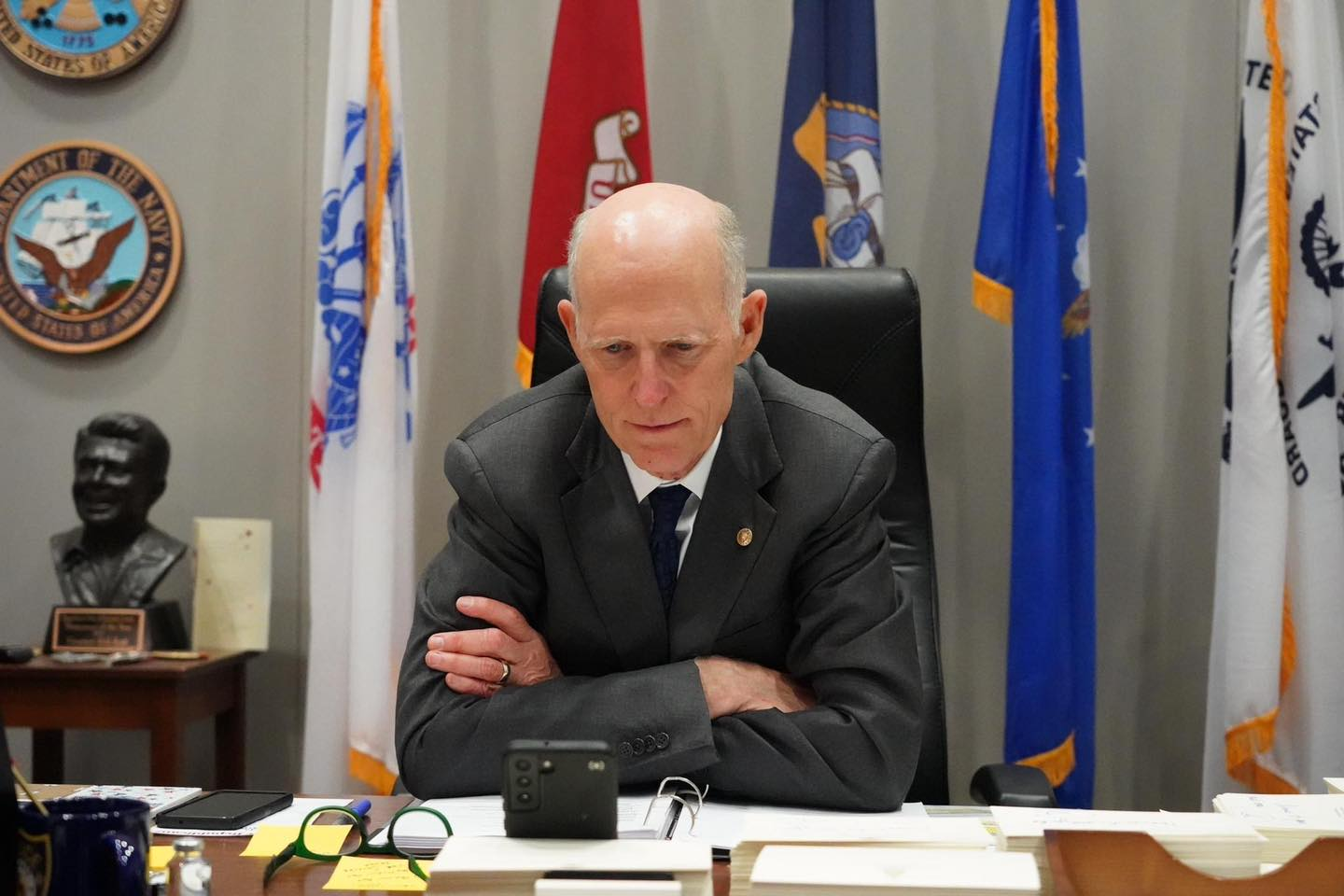Rick Scott tariffs have become a pivotal topic in U.S. trade discussions, particularly as the nation navigates complex economic relations with global partners. These tariffs, initially advocated during the Trump administration, aim to level the playing field for American workers and help boost sales of U.S. products abroad. As U.S. tariffs policy evolves, many are questioning the economic impact of tariffs, with particular emphasis on how they affect U.S. workers and the overall trade policy. Critics caution that these measures could exacerbate tensions, particularly in China trade relations, while supporters argue they are essential for protecting domestic industries. In an era grappling with global financial uncertainty, understanding the implications of Scott’s stance on tariffs is crucial for both consumers and policymakers alike.
In recent discussions surrounding international trade frameworks, the focus has shifted to Rick Scott’s strategies concerning import duties. Through these fiscal measures, he seeks to enhance competitiveness for American labor against foreign markets, especially in relation to European and Asian economic policies. Such tariffs are part of the broader landscape of U.S. economic strategies, reflecting tensions in trade relationships, most notably with China. Advocates believe that these tariffs could mitigate trade imbalances and revitalize manufacturing sectors, while dissenters raise concerns about potential inflation and retaliatory tariffs. As debates continue, the ramifications of these tariffs will undoubtedly shape the future of American economic policy and its interplay with global trading partners.
The Economic Impact of Rick Scott Tariffs
Senator Rick Scott’s endorsement of tariffs as a tool for economic growth reflects a broader sentiment in U.S. trade policy that emphasizes protecting domestic industries. By asserting that tariffs can level the playing field, Scott aims to bolster American workers who he believes have been disadvantaged in global trade, particularly against nations like China. This initiative aligns with the current administration’s approach to reshaping U.S. trade policy, which has included sweeping tariffs on various countries, redefining how international trade operates and prompting discussions about the economic impact of tariffs on U.S. manufacturers.
Despite the potential benefits that Scott articulates, there are significant concerns regarding the consequences of imposing such tariffs. Critics argue that while intended to stimulate the American economy, these tariffs could lead to increased costs for consumers and image imports. Economic analysts note that excessive tariffs might provoke retaliatory measures from trading partners, thus exacerbating trade tensions and potentially destabilizing the U.S. economy. As part of a comprehensive trade policy, it is crucial to evaluate both the short-term and long-term implications of these tariff strategies on domestic and global economic landscapes.
China Trade Relations Under U.S. Tariff Policy
Senator Rick Scott has articulated a stark stance on trade relations with China, expressing that a fundamental shift in U.S. tariffs is necessary to protect American interests. By advocating for a nearly 145 percent tariff on Chinese imports, Scott underscores the pressing need to address perceived imbalances in trade, which he claims favor China over the U.S. His aggressive position highlights a growing consensus among U.S. lawmakers regarding China as a formidable economic competitor, and these tariffs are seen as a strategic move to safeguard U.S. jobs and promote domestic production.
However, this assertion raises critical questions about the sustainability of such a trade approach. The significant tariffs on Chinese goods have led to elevated prices for consumers in the U.S., which could negate potential gains for American workers. Furthermore, economists suggest that a prolonged trade conflict with China could result in a detrimental economic impact, limiting growth and innovation. Thus, while Rick Scott’s tariffs may serve as a strategic protection mechanism, the overall efficacy and economic ramifications remain highly debated within trade policy discussions.
Trade Policy and Its Implications for U.S. Workers
Rick Scott’s articulated vision for U.S. trade policy is rooted in the belief that American workers deserve protective measures against foreign competition. By pushing for higher tariffs, he aims to create an environment where U.S. industries can thrive without the disruptive impact of cheap imports. Scott’s vision reflects a broader alignment with populist sentiments that prioritize American labor over global trade facilitation. This perspective highlights the importance of developing a robust national workforce that can compete effectively in an increasingly interconnected global economy.
However, while tariffs aim to benefit U.S. workers in theory, the practical implications can be more intricate. High tariffs could lead to inflationary pressures, raising prices for goods and services, which would disproportionately affect low and middle-income families. As U.S. workers express their concerns over job security and wages, lawmakers must consider the balance between protective trade policies and the potential economic fallout. It becomes crucial to ensure that any trade policy enacted truly fosters job creation and economic stability for American workers.
Debate on the Efficiency of Tariff Strategies
The ongoing debate surrounding Senator Rick Scott’s endorsement of tariffs reflects a divide in economic thought regarding their efficiency as a trade strategy. Proponents, including Scott, argue that imposing tariffs can compel other nations to negotiate fairer trade practices. They believe that such measures can eventually lead to reductions in trade deficits and bolster domestic job markets. During the JFK Jr. Forum, Scott expressed his conviction that if the U.S. does not advocate for its workers through tariffs, American industries would continue to be compromised by international competitors.
Conversely, critics highlight that aggressive tariff implementations can lead to unintended consequences, such as distorted global supply chains and higher consumer prices. Former economic advisors like Jason Furman caution that these tariffs might not produce the desired economic uplift, instead leading to a potential downturn in trade relations. This ongoing debate emphasizes the need for a balanced perspective on trade policy solutions, weighing the immediate benefits against long-term economic sustainability.
Implications of Tariffs on U.S. Economic Growth
The implications of U.S. tariffs, especially those supported by Senator Rick Scott, extend beyond immediate protectionism, influencing broader economic growth patterns. While tariffs may aim to shield domestic industries, they can inadvertently stifle innovation by increasing costs for American manufacturers reliant on imports. As companies face higher input prices, they may cut back on expansion or workforce investments, which can impede overall economic growth. Thus, while aimed at benefiting American workers, these tariffs must be carefully analyzed to ensure they do not suppress the economic vitality they seek to promote.
Moreover, the geopolitical ramifications of tariff policies can’t be overlooked. In an interconnected global economy, unilateral tariff implementations can lead to trade wars, with countries retaliating against American exports. This retaliation can adversely affect U.S. agricultural and manufacturing sectors, which rely heavily on international markets. Understanding the complex web of global trade dynamics is essential for policymakers like Scott to navigate potential growth pathways effectively, maximizing benefits for American workers without jeopardizing larger economic stability.
The Role of Tariffs in U.S. Trade Relations
In redefining the U.S. trade relations landscape, tariffs play a pivotal role. Senator Rick Scott’s advocacy for substantial tariffs serves as a declaration of intent to reset the country’s trade dynamics, particularly concerning economically aggressive nations like China. By instituting high tariffs, the intent is not just to protect U.S. jobs but to force other nations to engage with the U.S. on more favorable terms. Scott’s approach reflects a significant shift in trade policy that could redefine how the U.S. interacts globally.
However, this strategy is fraught with challenges. Critics warn that a focus on tariffs may alienate potential allies and lead to confrontations with trading partners, disrupting the harmony necessary for global economic cooperation. As the world moves towards embracing free trade agreements, Scott’s tariff approach may risk the strategic alliances that have historically benefitted U.S. economic interests. Evaluating the role of tariffs in U.S. trade relations requires a delicate balance between protective strategies and collaborative efforts.
Future of U.S. Tariff Policies on Global Markets
The future direction of U.S. tariff policies, particularly under the aegis of advocates like Senator Rick Scott, will have significant implications for global markets. If tariffs are maintained or increased, it could set a precedent for other nations to follow suit, leading to a cascade of protectionist measures that would alter the landscape of international trade. On one hand, this could result in a temporary boost for U.S. industries; on the other, it risks undermining the very multilateral frameworks that facilitate trade and economic cooperation.
Furthermore, the dynamic relationship between U.S. tariffs and global markets highlights the need for refined trade strategies that consider both domestic economic needs and international obligations. Policymakers must assess how variations in tariff policies affect competitive advantages globally while predicting how altering import-export dynamics will influence economic growth. The intersection of domestic and international trade policy presents a crucial frontier for ensuring that U.S. workers benefit from a balanced economic environment.
Evaluating the Long-term Effects of Tariff Policies
As discussions surrounding the effects of tariffs on economic policies evolve, it is essential to evaluate their long-term impacts, especially those articulated by Senator Rick Scott. While immediate advantages might seem favorable for American workers and industries, economists caution against short-sighted strategies that overlook the consequences of sustained tariffs. The interplay between tariffs, inflation, and consumer behavior could culminate in an economic landscape significantly different than anticipated, necessitating rigorous analysis and adaptive policymaking.
Furthermore, the long-term effects of tariffs on global trade relationships must also be considered. Protective tariffs may initially shield U.S. industries, but prolonged imposition could strain international partnerships crucial for economic stability and growth. Future policy decisions must take into account whether such tariffs foster a competitive and robust economy in the long run or create barriers that stifle collaborative trade initiatives essential for global economic health.
The Intersection of Tariffs and National Debt
Rick Scott’s advocacy for tariffs intersects with discussions about national debt and economic responsibility. As the Congressional Budget Office forecasts soaring national debt, supporters of tariffs propose that protecting American industries could lead to increased domestic revenues, potentially alleviating some fiscal burdens. By positioning tariffs as a tool to bolster U.S. revenue, Scott emphasizes the role of effective trade strategies in promoting a healthier economic outlook.
However, the connection between tariffs and national debt is complex. Some experts argue that while tariffs might raise government revenue, they could also contribute to higher inflation, impacting consumer spending and economic growth. Building a comprehensive understanding of how tariffs influence the national debt is essential for policymakers, as it involves balancing immediate fiscal pressures with the sustainable growth of the U.S. economy. Thus, Rick Scott’s tariff policies must be closely examined within the broader context of financial accountability and economic prosperity.
Frequently Asked Questions
How do Rick Scott tariffs impact U.S. workers?
Rick Scott supports tariffs as a means to protect and promote U.S. workers by leveling the playing field against foreign competition. He argues that these tariffs will encourage American workers to sell more products by reducing barriers to international trade.
What is the economic impact of Rick Scott’s stance on U.S. tariffs?
Rick Scott believes that the economic impact of his tariff strategy will ultimately benefit American workers by helping to close trade deficits and support U.S. manufacturers. However, some economists warn that these tariffs could negatively affect the overall U.S. economy, arguing they may lead to increased prices and reduced market stability.
How does Rick Scott view China’s role in U.S. trade policy?
Rick Scott sees China as the primary competitor in U.S. trade relations and is critical of their economic practices. He advocates for a trade policy that minimizes interaction with China, asserting that the only way to avoid conflict with them is to significantly diminish their economic strength.
What are the main components of Rick Scott’s trade policy?
Rick Scott’s trade policy emphasizes the imposition of tariffs as a tool to encourage other countries to lower their own tariffs on U.S. goods. He advocates for simplified trade agreements that support American workers and manufacturers while opposing trade with nations like China.
Are there concerns about inflation related to Rick Scott tariffs?
While Rick Scott has expressed uncertainty about how tariffs will affect inflation, he emphasizes that controlling inflation may require balancing the federal budget. The potential inflationary effects of tariffs depend on various economic factors, including market responses and consumer behavior.
What is the rationale behind Rick Scott’s support for higher tariffs on China?
Rick Scott supports higher tariffs on China as a measure to protect U.S. industries and reduce dependence on Chinese goods. He argues that by making Chinese imports more expensive, it encourages domestic production and sales, ultimately benefiting U.S. workers.
How do Rick Scott tariffs align with the broader U.S. tariffs policy?
Rick Scott’s tariffs align with a broader U.S. tariffs policy aimed at reshaping trade relationships and addressing trade imbalances. His support for aggressive tariff measures reflects a trend in U.S. trade policy to prioritize domestic manufacturing and protect American jobs.
| Key Point | Details |
|---|---|
| Tariff Strategy | Sen. Rick Scott supports Trump’s tariff policy to motivate other countries to reduce their tariffs on U.S. goods. |
| Impact on U.S. Workers | Scott believes tariffs will benefit American workers by removing trade barriers and increasing their ability to sell products. |
| Tariff Rates | A 10% tariff is applied to most nations, with a staggering 145% on China. China retaliates with a 125% tariff on U.S. goods. |
| Economic Concerns | Scott’s policies have led to volatility in global markets, contributing to a significant GDP contraction in Q1 2025. |
| Trade with China | Scott opposes trade with China, claiming that cutting ties is essential to avoid war and stabilize U.S. economic health. |
| Long-term Fiscal Outlook | Scott indicates a need for balanced budgets to improve the national fiscal position, amidst concerns about rising debt. |
Summary
Rick Scott’s tariffs are positioned as a strategy to enhance the competitiveness of American workers while addressing concerns regarding trade relationships, especially with China. By supporting robust tariff measures, Scott aims to encourage a fair trade environment that benefits the U.S. economy. However, there are significant debates surrounding the potential negative impacts of these tariffs on inflation and overall economic performance, which should be closely monitored as these policies evolve.



